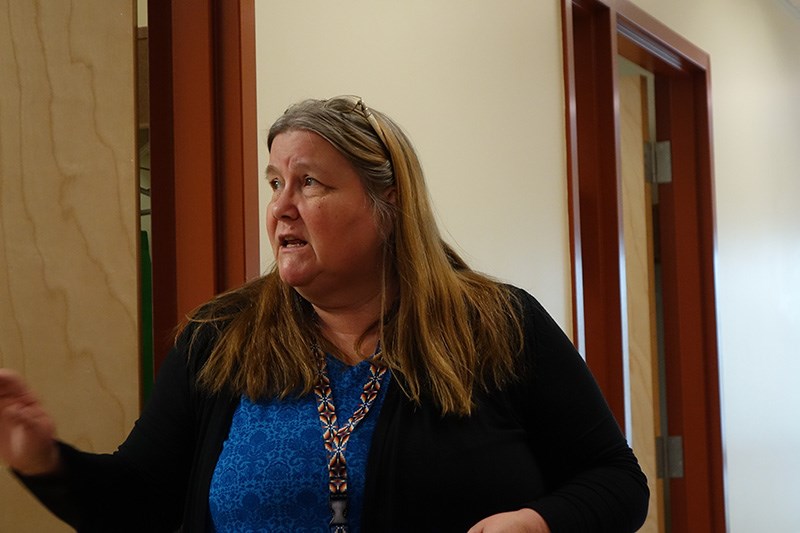The Addictions Foundation of Manitoba (AFM) celebrated 10 years of addictions treatment at the Eaglewood Addictions Centre on Princeton Drive Sept. 27.
The $9.3 million facility officially opened June 12, 2009 and includes a residential treatment unit that now provides services to about 272 clients per year, as well as a five-bed non-medical withdrawal unit, community-based programs that serve about 1,800 people a year and a rapid access to addictions medicine (RAAM) clinic that can prescribe medications to ease the symptoms of drug withdrawal and reduce alcohol cravings as well as provide opiate replacements therapy drugs like suboxone and methadone.
“It was really an honour to have a brand new facility come to our northern area and to be able to have something established that was made and developed for people who were going into treatment and it wasn’t just a building that was adapted and adopted and given to you for a dollar from Vale,” said John Donovan, who was the AFM’s northern director at the time the facility opened.
Addictions touch many people’s lives, even across generations, said Mayor Colleen Smook.
“I’ve had family that has gone through back when it was in the Polaris building,” she said. “I had a sister that utilized the services there. At that time the Al-Anon program was in there that my mom was able to access in dealing with our loving sister. Then we moved to this new building in all its glory and glamour. Over the first year, one of your first clients was one of my sons.”
Clint Saulteaux, a former addict who’s been clean for 33 years, said he’s met many people who have been treated at AFM in Thompson and that AFM staff are miracle workers in his opinion.
“The stories that come into these rooms are more powerful than some of Hollywood’s best stories, stories of resilience, stories of obstacles overcome,” he said. “I love this building and how many lives it continues to save and what an effort it takes to even fix one human being that comes into this room.”
Current AFM northern director Gisele deMeulles, who worked for AFM in Thompson from 1987 to 1996 before moving down south and then coming back, says the Eaglewood Addictions Centre is a place of transformation as people begin their journeys toward sobriety.
“We have 28 days and in those 28 days we see such incredible change,” she said. “We’ve seen people here that come into our withdrawal unit and they cannot even hold a glass of water. We have to hold the water so they can drink because they’re vibrating and shaking so bad and they’re suffering physically so terribly. Twenty-eight days later you watch them in the graduation ceremony and their head is up and they’re looking healthy. It’s a beginning.”
The RAAM clinic began operating in September 2018 and now has a full-time nurse and a half-time counsellor, while the Northern Regional Health Authority provides doctors who are trained in opiate replacement therapy to assist clients as well.
“Sometimes naltrexone is used to help you with the cravings for alcohol and certainly we’re looking at opiate users who need a program with suboxone and we will do that in-house. We will help them in dealing with the opiate addiction, getting on suboxone and we will monitor them here and do all the follow-up here. When I first started here the only way you could get that was through Winnipeg. We also do services to meth users here.”
The non-medical withdrawal unit has seen more use in recent years, says deMeulles.
"When we had it just for alcohol only very rarely did we have people in here,” she said. “When we opened it up [to people withdrawing from other drugs] it was full all the time.”




